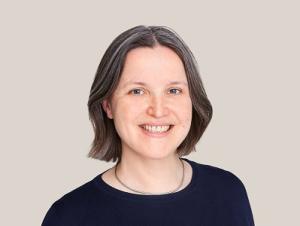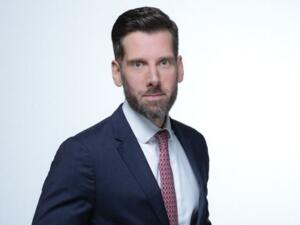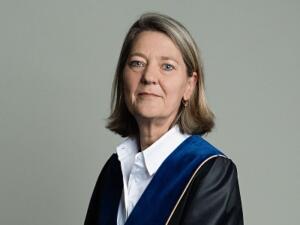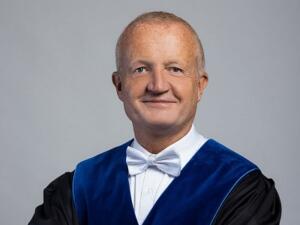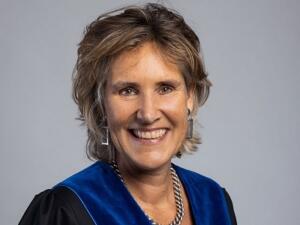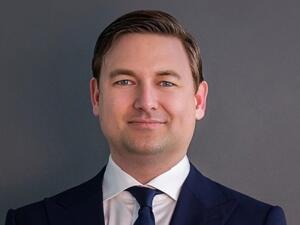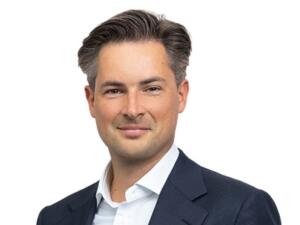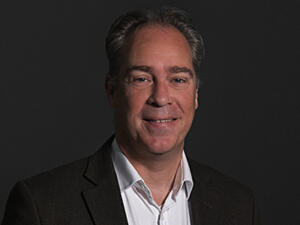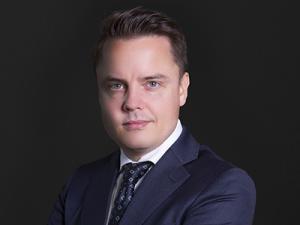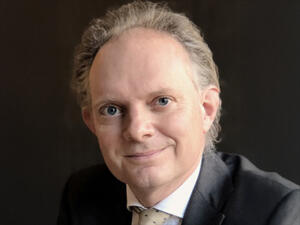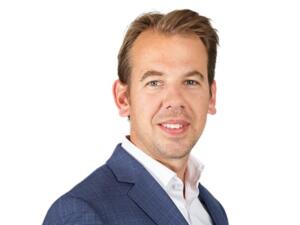Recovering from stormy times
When the UPC launched, cases in the Netherlands failed to materialise and gloom began to set in among Dutch patent litigators. Now, they are more confident about the future. The Dutch local division is receiving more cases and has become an important hub in the international mRNA wars. But not all law firms are benefiting.
1 October 2025 by Mathieu Klos
The Dutch like to boast of their pragmatic and cosmopolitan approach. “Just like seafarers and traders,” they say. Because of this openness, partners moving between patent firms in The Hague and Amsterdam has never been taboo. But in the last two years, there has been an even greater uptick of partner moves in the two cities, which are home to around 90% of Dutch patent firms. Many of the practices are now unrecognisable.
It all began two and a half years ago, shortly before the UPC launch. In March 2023, Gertjan Kuipers moved to Hogan Lovells and set off a chain reaction. Until then, Kuipers had been the frontman in the patent team at De Brauw Blackstone Westbroek.
The national full-service firm was buzzing at the time. There were reports in newspapers of a fundamental reorientation towards highly profitable corporate and finance business. Whatever the reason, in the end Kuipers and some senior associates moved to other law firms.
Where the road leads
The UPC heralded major changes to the European patent system. Nobody knew exactly where the journey in European patent law would lead. But many in Germany, France, the Netherlands and other UPC countries were hoping for big business with UPC cases.
At the time, Hogan Lovells was urgently seeking an experienced partner for its Amsterdam team. Veteran Bert Oosting was retiring and the team was too small with Ruud van der Velden and Dirk-Jan Ridderinkhof. Kuipers was the perfect fit for the international law firm, which was gearing up for the UPC launch.
Contrary to rumours, however, De Brauw did not want to forgo patent litigation and so looked to its national competitors. Subsequently, Anne Marie Verschuur moved from Nauta Dutilh to De Brauw in 2023.
- Gertjan Kuipers
- Anne Marie Verschurr
- Jeroen Boelens
Jeroen Boelens had to take over responsibility at Nauta Dutilh, having only been appointed partner the previous year. The firm also brought in a well-known Supreme Court litigator. In the end, however, Boelens also moved on and has lent his strength to CMS Derks Star Busmann since September 2025.
When top boutique Brinkhof also announced its exclusive cooperation with Vossius & Partner for UPC litigation, it seemed everyone had found their starting line-up ahead of the UPC. On the eve of the launch, expectations in Amsterdam and The Hague were high.
Through a valley of tears
But what followed over the next 18 months is well known. Many of the first UPC cases went to the German local divisions. Paris, Brussels, Milan, and The Hague were initially left out in the cold. Worse still, Dutch lawyers unanimously report the District Court The Hague has received fewer and fewer patent cases since the UPC began. Key staff have also transferred to the UPC.
Second-instance judge Rian Kalden, for example, now works full-time at the UPC Court of Appeal, as does Peter Blok. First-instance judges Edger Brinkman and Margot Kokke now work mainly for the UPC and only on a case-by-case basis for the District Court The Hague. Marjolein Visser now works part-time for the central division Paris, while Marije Knijff also works part-time for the central division in Milan. The rest of the time both work as permanent national judges in The Hague.
- Rian Kalden
- Edger Brinkman
- Margot Kokke
Furthermore, the District Court has published noticeably few judgments over the last two years. Almost all lawyers with whom JUVE Patent has spoken in that time have expressed concern about this.
“You cannot expect new cases if you invalidate a lot of patents and the judgments take more than half a year,” says an Amsterdam lawyer. Behind the scenes, lawyers and judges have been discussing intensively how to make The Hague a more attractive location for large patent cases again.
A recent uptick
The Dutch patent community was therefore relieved to see that the District Court The Hague published several judgments in quick succession in summer 2025.
For example, the court recently dismissed the revocation action of Samsung Bioepis (advised by Simmons & Simmons) against a second medical use patent in the epic battle over Janssen’s blockbuster Stelara. Janssen relies on the Dutch practice of Hoyng ROKH Monegier.
A few weeks before, Novartis secured a sales ban against Glenmark’s generic version of autoimmune drug Revolade, with Freshfields acting for Novartis and Taylor Wessing advising Glenmark.
In July, Verify IP, with support from Brinkhof, successfully invalidated the Dutch part of a mobile communications patent belonging to Dutch company KPN. KPN relied on a European Bird & Bird team under the lead of Dutch partners.
Then, in September 2025, ToolGen and Dutch national firm BarentsKrans launched an attack on the production of Vertex’s gene-editing therapy Casgevy in the Netherlands. Vertex defended itself with Freshfields.
New hope germinates
In the meantime, some lawyers are hoping that speed is no longer an issue at their home court.
“The hopes of many were high with the UPC,” says Oscar Lamme, partner at Simmons & Simmons, a firm that had also banked heavily on UPC litigation business in the Netherlands. “While there was some initial disappointment in the Dutch market, things are picking up and a good number of firms are now handling more and more UPC cases.”
According to the last official UPC statistics in June, the local division The Hague under presiding judge Edger Brinkman and Margot Kokke had 22 infringement and six PI cases at the time. This put it behind the German local divisions, but just ahead of the Paris local division, which had 21 infringements and three PI cases. Since then, a number of cases have been added in The Hague — mainly with a life sciences dimension.
In April, for example, GSK and Bird & Bird filed two lawsuits with the Unified Patent Court against BioNTech and Pfizer related to three mRNA patents. GSK’s litigation campaign extends beyond BioNTech and Pfizer, however. In July, the company filed two additional UPC lawsuits against Moderna in The Hague with Bird & Bird’s support. The patents-in-suit are the same as in the cases against BioNTech and Pfizer.
Surprisingly, Moderna is defended not by its Dutch core firm Freshfields but by Gertjan Kuipers from Hogan Lovells, while BioNTech is relying on Powell Gilbert and a Dutch-German team from Hoyng ROKH Monegier.
The Hague is currently hearing six of the seven mRNA proceedings at the UPC. Freshfields previously acted for Moderna in an action which Brinkhof filed on behalf of Genevant Sciences and Arbutus Biopharma at the local division The Hague.
Life sciences in focus
The most active plaintiff in the local division The Hague so far is probably Abbott, with one claim against Dexcom, three claims against SiBio Technology (advised by Simmons & Simmons) and two claims against Sinocare and Menarini (advised by Bird & Bird). All six cases concerned glucose-monitoring devices, and it was a Taylor Wessing team that brought the cases to the Dutch local division.
Recently, Abbott brought an additional medical devices case to The Hague, with Abbott and a Taylor Wessing team asking for a PI against SenEaron Healthcare, Mediq and others. It is currently not known which firm advises the defendants.
But the Dutch UPC division is not only good at life sciences. It also has a mobile communications case in KPN (with Bird & Bird) vs Oppo (with Vossius Brinkhof UPC Litigators), and a battery technology case between Sol IP (with FieldFisher) and BYD Automotive (with Hogan Lovells).
Divided opinions
Despite the increase in UPC cases, say some lawyers, the cup does not runneth over. “Big Dutch patent firms used to have up to ten big national cases per year, but that has now gone down to one or two UPC cases,” says one. Another says: “All Dutch firms — no matter what size or type of firm — have lost a piece of the pie.”
Rutger Kleemans, partner at Freshfields, on the other hand, says: “The situation in the Netherlands has stabilised.”
- Rutger Kleemans
- Tjibbe Douma
Most Dutch litigators no longer see their UPC activities limited to The Hague anyway. Rutger Kleemans adds, “Our business now mainly takes place before the UPC, not only because the local division in The Hague is now attracting more cases, but also because, for example, the local division in Brussels has become an important jurisdiction for us. They speak our language here and the presiding judge, Samuel Granata, is a very practical judge who — of all the UPC judges — probably has most personal experience in handling UPC-style seizures, those originating of course from the Belgian tradition.”
But the world is now also coming to The Hague. Recently the local division The Hague heard the big PI cases over glucose-monitoring devices in Abbott vs Sinocare. Big international teams were present on both sides, with Abbott relying on Taylor Wessing under the lead of Brussels-based partner Christian Dekoninck and August Debouzy partner Francois Pochart. Sinocare defended itself with Bird & Bird lawyers from France, Germany and Italy under the lead of the Dutch team around Tjibbe Douma.
Budding confidence
Though confidence is growing in the Dutch patent teams, the move of a team from Simmons & Simmons to Taylor Wessing in summer showed there is still profound uncertainty.
In June, well-regarded senior partner Bas Berghuis van Woortman and junior partner Sebastien Versaevel announced they would join the Dutch team of Taylor Wessing. Versaevel is now an equity partner at Taylor Wessing; after difficult exit negotiations, Berghius will probably follow in November.
The latter in particular has been an important part of Simmons & Simmons’ European patent practice for years and was instrumental in driving its pan-European expansion.
Another interesting aspect of the change is that Simmons & Simmons had by no means a bad start at the UPC. Nevertheless, Taylor Wessing’s was better. Indeed, the firm made it into the top tier of JUVE Patent’s first ever UPC litigation ranking.
The Dutch team led by Wim Maas played a major role in this with its presence in many cases for Ericsson, Abbott, and Pfizer. The Dutch Taylor Wessing team is regarded as one of the beneficiaries of the UPC development.
- Sebastien Versaevel
- Bas Berghuis
- Oscar Lamme
Simmons & Simmons made it into the second tier of the ranking, but the pan-European team’s fortunes have since taken a turn. In addition to Berghuis and Versaevel, a London partner also left the firm. In the Amsterdam office, Oscar Lamme and Machteld Hiemstra now have to drive forward the reconstruction. They have a solid basis with UPC cases for SiBio Technology and Honeywell.
Rumours of changes at Vondst
There is also much speculation about the future of the renowned patent team at IP boutique Vondst. Alongside market leaders Hoyng ROKH Monegier and Brinkhof, the team led by Otto Swens, Arvid van Oorschot, and Ricardo Dijkstra is the third well-known IP boutique in the Dutch patent market. Vondst is mainly known for litigation regarding pharmaceutical drugs for generic drug manufacturers.
But unlike Hoyng ROKH Monegier and Brinkhof, which are active in several UPC cases, the Vondst team was only involved in one PI case at the new court, namely for Mammoet Holding over a patent regarding transport technology. Like most other Dutch firms, however, Vondst advises clients on protective letters and on strategies regarding UPC cases. This work is mainly for its core generic pharmaceutical clients.
Rumours about changes at Vondst have been circulating for several months. The team has good contacts with other European IP law firms, but also with US law firms that do not yet have their own offices in UPC territory. The three partners make no secret of the fact that they are reviewing their options on the market.
Otto Swens says: “Due to the developments initiated by the UPC, we are discussing whether we can remain independent. That has our preference, but there are pros and cons. A merger could be attractive, but only if we are very sure that the chemistry and conditions are a good fit.”
Private equity discovers the market
With the advent of the UPC, patent attorneys are also facing enormous technological challenges. Above all, the future use of AI applications. The need for investment is enormous. The framework conditions for private equity investments in the legal market are more favourable in the Netherlands than in other European countries, experts report.
In April 2025, well-regarded Dutch patent attorney firm NLO and French patent attorney firm Ipsilon announced their merger, with Dutch private equity house Waterland investing in the combined firm’s future.
While NLO is a pure patent attorney firm, Arnold & Siedsma practices a mixed approach with a small lawyer team. The firm was recently active in three cases at the UPC. Nevertheless, after 100 years of independence it recently announced its merger with private-equity-backed international firm Rouse.
Hope floats
As befits the descendants of seafarers and traders, Dutch patent litigators are by no means discouraged by the first two UPC years. Indeed, they believe they will catch up to their strong German competitors.
Otto Swens from IP boutique Vondst says, “Many patent attorneys are now advising their clients to opt for the Unitary Patent. In the long term, this will lead to more UPC cases. It is therefore clear that the system will increasingly move away from national cases toward UPC cases. We are also seeing more and more SMEs taking an interest in the UPC.”
- Otto Swens
- Daan de Lange
- Wim Maas
Daan de Lange, partner at IP boutique Brinkhof, says: ” It turned out that the UPC judges focused quite often on validity aspects in past proceedings and that the UPC has more power to revoke a European patent than national courts had before. Therefore, the UPC is a great fit for Dutch patent litigators because we are experienced in both infringement and validity proceedings, like for German litigators from a mixed practice.”
Wim Maas from Taylor Wessing, for example, will focus entirely on UPC cases in the future. “I do not see myself as a Dutch lawyer anymore. I am UPC trial lawyer,” he says. “UPC law is the future. Dutch patent litigation will, at best, be a side show in global campaigns. For the time being it will only remain relevant for pharma disputes.”
Dutch influence remains
In addition to increasing proceedings, Dutch patent firms can continue to rely on the great influence of Dutch UPC judges such as Rian Kalden, Edger Brinkman and Margot Kokke. They are not only present in numerous UPC proceedings, but also tirelessly promote the new court at countless international IP conferences.
The CJEU’s case law in BSH vs Electrolux and the UPC’s long-arm jurisdiction approach also play into the hands of the Dutch. After all, Dutch lawyers have always been good at cross-border injunctions.

